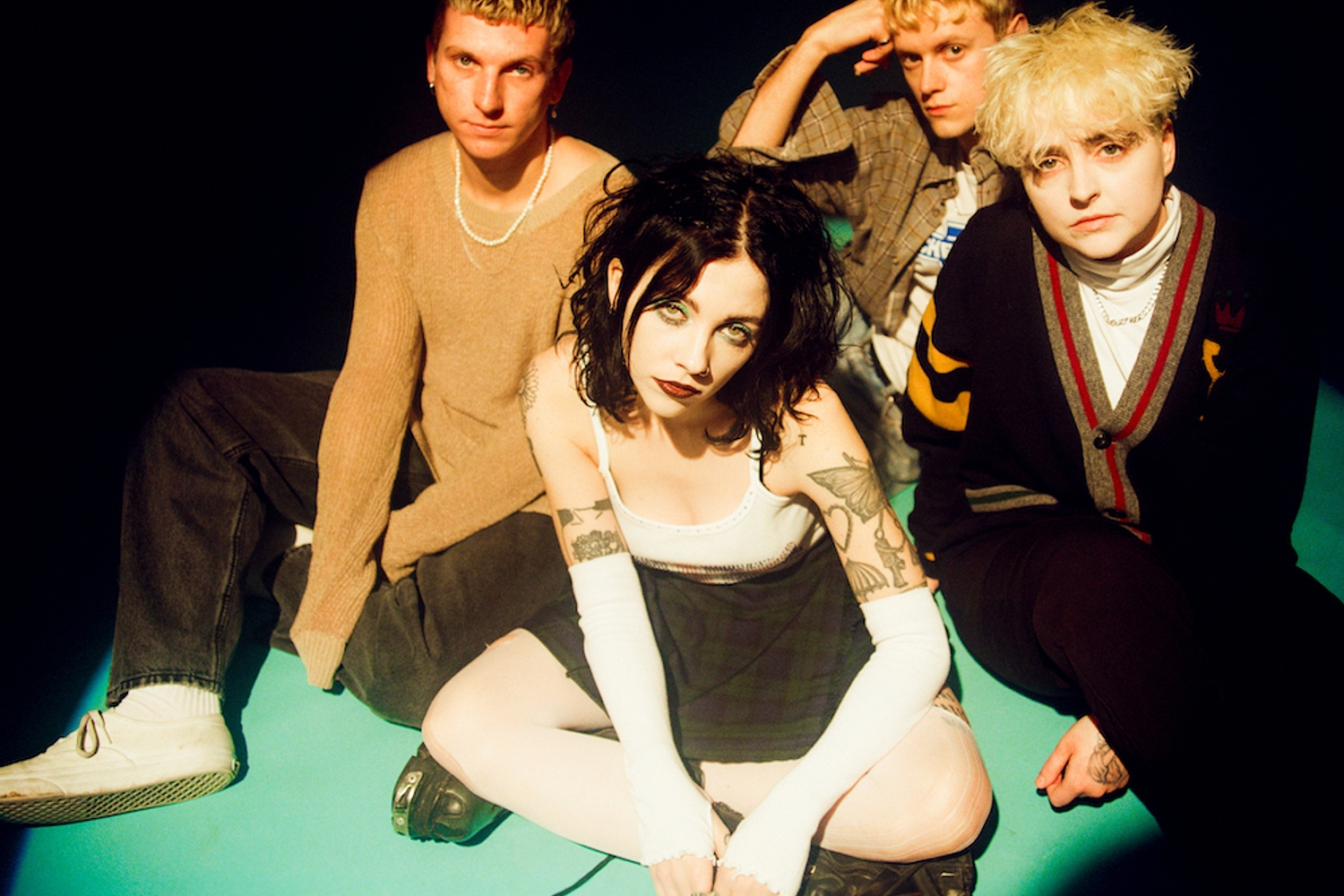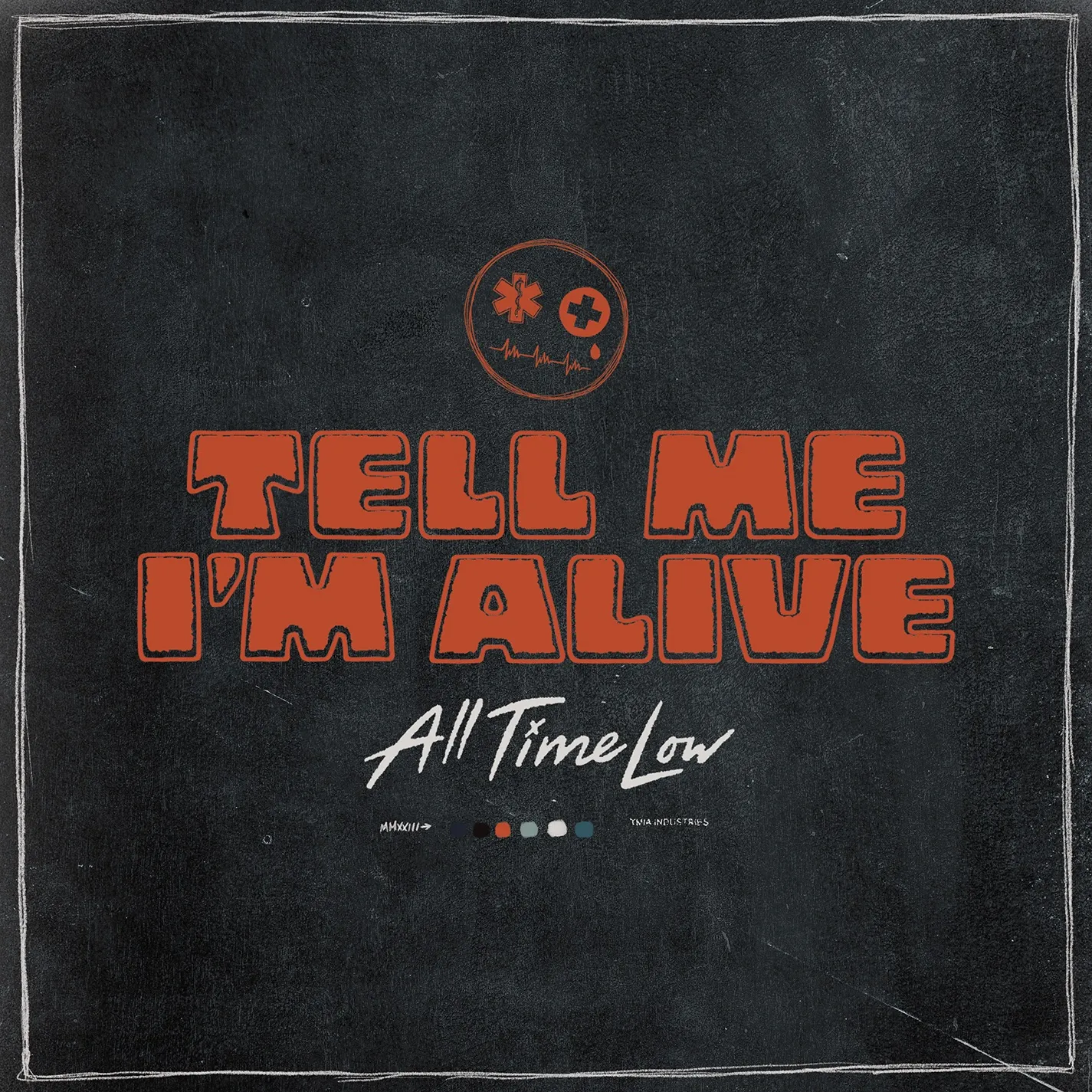
Interview Inner workings: All Time Low
As the band celebrate the release their seventh album ‘Last Young Renegade’, frontman Alex Gaskarth talks us through some of its main inspirations.
All Time Low have, let’s face it, had a rather unique career so far. Having burst out of the blocks way back in 2003, the Baltimore quartet quickly earned themselves a reputation for producing some of the most iconic mid-Noughties pop punk hits to hit rock club nights everywhere. Yet, unlike many of their peers who would - over the years that followed - slow down or fall by the wayside, the band found themselves going from strength to strength, against all expectations.
With their previous record ‘Future Hearts’, the group took things up another notch entirely. Having raced to the top of the charts on both sides of the Atlantic, while selling out an arena tour on our shores, their new success would soon become just another intriguing chapter of their story. But now, with their seventh album ‘Last Young Renegade’, they’re doing things a little differently, exploring a new and darker sound in the process.
Ahead of the record’s release, we sat down with the band’s Alex Gaskarth to talk through their new album’s more direct influences and inspirations, while discussing some of its inner workings along the way.
MOMENT IN TIME
After the success of ‘Future Hearts’, you obviously found yourself in somewhat of a unique position, in comparison to some of your band peers. Going into this new record, did you feel more pressured, or was there something liberating about the whole experience?
To be honest, it was a bit of both. I think what's interesting is we don't really know what to chalk up to the fact that there was a big jump in popularity of the band. Maybe part of it was that we saw a new wave of fans come aboard; a younger generation that's jumped on. As far as musically and creatively, we felt like it would've been too easy to go and make another record that sounded the same as 'Future Hearts'. It wasn't about putting out that same thing because it worked. The growth was because I think the songs got better, in general, on 'Future Hearts' and it was more about pushing that, rather than rewriting 'Something's Gotta Give'. It's more important to us to be a long-lasting band by shaking things up and growing, and not becoming complacent.
I think what's cool is that on 'Future Hearts', there are the beginnings of the new album. From 'Don't Panic' to now, 'Future Hearts' is something of a bridging album. 'Tidal Waves' and 'The Edge of Tonight' feel like they take us to where we are now, so it feels like quite a natural progression despite the fact this record is pretty different.
SECRECY
For ‘Last Young Renegade’, you wrote a handful of songs in relative secrecy. What sort of effect do you think that had on the album as a whole?
It's fun to not really worry about the pressures of 'Oh, it's time to make a record.' I think that really helped with the creative side of this album: a lot of the cornerstone songs were done without anyone really watching. When we signed to Fueled By Ramen, we already had five songs and played them. 'Good Times' was one of the first songs we played to them and they were like, 'Oh, okay, we get it now.'
What exactly would you say the four cornerstone of the album are?
I think 'Good Times' was one, as it shows off a different side to All Time Low. We don't usually go super ballady in All Time Low, and that was obviously something I felt we could have more of. 'Dirty Laundry' was obviously one of them, going down that slightly darker path, and exploring some different sounds. It's hard to say – maybe 'Life of the Party' and 'Afterglow' are the final two, in different ways. I think 'Life of the Party' is more of an anthem from the record and takes us into the bigger sounds. That song was written with arenas in mind. 'Afterglow' was actually the last song we wrote for the record, and it was because we felt as though we didn't quite have an ending. That song tied everything together.
"It's more important to us to be a long-lasting band by shaking things up and growing."
— Alex Gaskarth
NOSTALGIA
Nostalgia plays quite a big role in this record and you’ve spoken openly about the influence of 80s music on this album, but how it’s used in a more subtle way. It’s certainly not full blown, ‘This is the 80s!’
Oh god, no! It's not an 80s tribute record! I was actually just thinking about that; I was listening to a bunch of 80s music. Do you remember Nick Kershaw? He was one of my favourite 80s artists and it's so good but it's so cheesy. That was a big thing, we wanted to capture some of those feelings, and that vibe, but without doing it in a way that felt like we were doing a tribute to 80s music. I think it's easy to get too far down that path and you end up sounding too like it, but we didn't want to do that.
You’ve also spoken about how the likes of ‘Stranger Things’ has inspired moments on this record, but that it was more about emulating the feeling of those 80s influences, as opposed to being much moe obvious about that. What sort of challenges did approach that present?
I think getting the balance right was the tricky part, and not going too far one way or another. It was about sprinkling things in, and adding textures – things that you hear but you don't hear. It was more about how we could keep it subconscious, and something felt but not heard. Even when we were mixing the record, I was using that phrase a lot. It was about finding that balance, and using those sounds – a lot of the stuff that was inspired by the Stranger Things soundtrack and going back to listening to my favourite 80s records which I'd grown up with. It was about evoking those feelings, rather than beating people over the head with them.
DEATH OF THE ICON
You’ve also mentioned the influence of icons such as David Bowie, Prince and George Michael on this record. Specifically with Bowie, there’s a track titled ‘Ground Control’, which somewhat says it all without being a direct ode to him. Why was it important to include nods to those artists?
Again, it's all a little more subtle and it wasn't like I was going, 'Let's flip that riff around from Bowie and record that again'. It was a little more of... What I love about Bowie was how experimental he was and it just felt very natural: something would get written in a room and they wouldn't think too much about it. What I really liked about those records - from Bowie and Prince - is that there's a lot of intros and outros. It was less about crafting Bowie-esque songs and more taking little things that those artists made popular, and introducing them into our music.
"We've all been through a lot."
— Alex Gaskarth
TEGAN AND SARA
Going back to ‘Ground Control’, you got Tegan and Sara involved on the track. How was that?
That was awesome. They're seriously awesome people and I've been a fan of theirs for a long time. We had never met them before, but now that people are hearing the song, it's almost like it's becoming the feature that nobody knew they wanted until they had heard it. I don't think anyone expected All Time Low and Tegan and Sara to do something together but every time I play someone it, it's like, 'Oh my god, 'Ground Control'!' It's a really cool thing and I think it came together really well.
That song was always written as a duet, so it was always written with a female vocal in mind, and it was just about how would be the best fit. We threw a few names out there but we weren't sure who would work for it. But sure enough, [Tegan and Sara] were the first ones we sent something out to and it turned out they were into it. They elevated the song; I think it was in one place when it didn't have them on, but now we've totally got it.
DARKNESS
Why was now the right time to dive into some of the more dark subject matter that you explore on the album? Not to say that the record is all doom and gloom, but it certainly has an edge to it…
I think it was just where we were in our lives, or where I was at in my life. Not to say I was in a dark place, but I'm approaching 30 and we've all been through a lot. There have been a ton of ups and downs, from the band side of things and in our personal lives, and there was a lot to air out. I think you get to 28, or 29, and you start looking back and realising you've changed a lot. There was a lot of baggage to put out in the world and we hadn't really done that yet - a lot of the records we released throughout our 20s were very celebratory, so this album was a little more about reflecting and airing it all out. It was good to get those feelings out there into the world.
That also then ties in with the fact that you have a narrator character - the Last Young Renegade - who must’ve given you a little more freedom to explore those areas without feeling too tied into the lyrics directly.
Yeah, almost like I wasn't divulging too much. It was also a nice device to wrap it all up in, for a ten song album. It could've gotten too deep, and I think what was great was that creating this Last Young Renegade was it became a great way to explore our youth and how it gets you to where you are now. The journey takes place through the eyes of that character and it was a great way to start young, where we had started, and to build it to where we are now. It was an interesting way to do it. It was just adding a connective thread from song to song, taking the themes and weaving them together, which I think is cool.
All Time Low's new album 'Last Young Renegade' is out now via Fueled By Ramen.
Read More

All Time Low team up with Pale Waves for ‘PMA’
The track is described as "existential dread wrapped in nervous laughter kissed by the SoCal sun".
2nd August 2021, 12:00am

Pale Waves to team up with All Time Low for new track ‘PMA’
The track arrives on Friday!
28th July 2021, 12:00am

blink-182’s Mark Hoppus and All Time Low’s Alex Gaskarth unite as Simple Creatures
The pair have shared debut track, ‘Drug’.
25th January 2019, 12:00am

All Time Low, New Found Glory & more for Slam Dunk Festival 2019
Gallows, Waterparks and NOFX are also among the first acts to be announced.
17th October 2018, 12:00am
With Bob Vylan, St Vincent, girl in red, Lizzy McAlpine and more.


